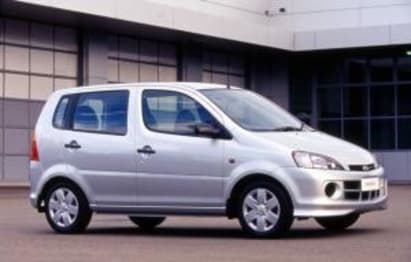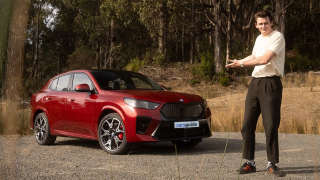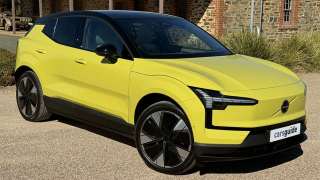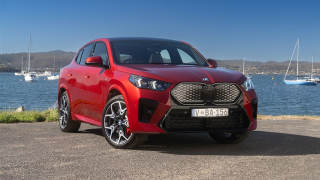
Daihatsu YRV 2001 Review
- Daihatsu Yrv
- Daihatsu Yrv 2001
- Daihatsu Yrv Reviews
- Daihatsu Reviews
- Daihatsu Hatchback Range
- Daihatsu Wagon Range
- Hatchback
- Wagon
- Daihatsu
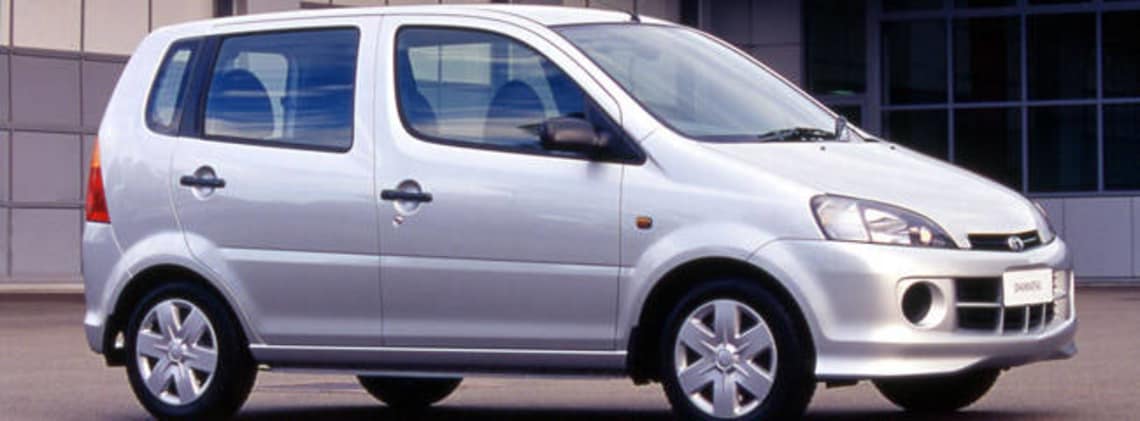
DAIHATSU was once the king of the tiny tots. Before the onslaught of the Korean carmakers, it ruled the roost among the baby-car clan with its top-selling Charade, successful Feroza four-wheel-drive and steady-selling Applause sedan.
But as these cars disappeared from the showrooms and the Koreans came blasting in with cheaper and trendier-looking cars, things started to go downhill for Daihatsu. It has been riding with a three-car line-up, the cut-price Cuore, the cute Sirion small hatch and the toy-like Terios off-roader, for two years, and sales have slid from more than 30,000 in the early 1990s to a little more than 5000 last year.
But the past year has been busy for the carmaker that still calls itself ``Japan's big small-car company''. Toyota Australia has taken over day-to-day running of the local operation, giving Daihatsu access to administrative resources previously out of reach. It has already updated the Cuore and Sirion, including adding a powerful GTVi version, and sales have picked up slightly.
But the car Daihatsu has been hanging out for is the funky-looking YRV mini wagon, which it believes adds a new dimension to its line-up. Australians haven't taken to the boxy little runabouts that litter the crowded streets of Tokyo - and the good-quality but awkward-looking Suzuki Wagon R+ and the tiny Daihatsu Move have disappeared from showrooms after dismal results.
But the YRV could change that, simply because of its good-looking wedge-shaped body and long list of standard creature comforts and safety features. Daihatsu says the designers knew the YRV's rivals lacked style so they concentrated on giving the car a distinctive look that would appeal outside Japan. It revealed its intentions this year by launching the production version at the design-driven boutique Geneva Show.
The car's most distinctive feature is a double-wedge window treatment that highlights theatre-style seating inside. The car has the 1.3-litre four-cylinder engine from the Sirion, which Daihatsu says is the most powerful powerplant in its class.
It has variable-intake valve timing to increase top-end power and improve fuel economy, and low-down torque to reduce exhaust emissions. The engine produces 64kW at 6000 revs and 120Nm at a reasonably low 3200 revs.
The front-wheel-drive car comes standard with a five-speed manual gearbox, but there's also an F1-style self-shifter with steering-wheel-mounted buttons for up and down shifts and a digital indicator screen inside the instrument dials.
Daihatsu says safety is a key aspect in the design of the YRV and it has inbuilt crumple zones and standard driver and passenger airbags and seatbelts with pre-tensioners. In the event of an accident, the doors automatically unlock, the interior light and hazard lights switch on and the fuel supply stops, to reduce the risk of fire.
The YRV comes standard with air-conditioning, a four-speaker CD sound system, power steering, electric windows and mirrors, central locking and an engine immobiliser.
Driving
There is much potential in this car. On paper, the performance figures and standard features look great -- until you see the price. The YRV is a small city runabout loaded with gear. But its hefty price tag means it will compete with the likes of base-model Ford Lasers and Holden Astras -- both of which have more space, more-powerful engines and are world-class, quality cars.
Against its own natural rivals, the YRV's wedge-shaped body is one of the best-looking in this class of vehicle. Its interior is modern and attractive, but the golf-ball-dimpled dash is made from hard plastic that doesn't stack up these days, even against cheaper rivals.
The instruments are easy to read, but the CD sound system has more buttons than the cockpit of a jumbo jet and there's a blank hole between the air vents, where something is obviously meant to go. The rear seats are actually 75mm higher than the front seats.
The seats are relatively comfortable and there's a reasonable amount of front legroom for the passenger and good adjustability in the driver's seat to get a good driving position. Mechanically, the YRV is a bit of a disappointment, considering Daihatsu's partnership with Toyota.
The engine is not outstanding, but it is probably the best mechanical feature of the car. It is reasonably quiet under normal driving conditions and revs smoothly and freely thanks to the variable-valve timing system. On the flipside, even a week of stop-start city driving produced reasonable fuel consumption of a little more than seven litres/100km.
The four-speed automatic in our test car was relatively smooth changing cogs, but the standard five-speed manual would get the most out of the underpowered engine. The steering-wheel-mounted shift buttons are a gimmick on a car like this, and once the novelty wears off you're unlikely to use them again.
The suspension feels fine on perfect-quality tarmac roads, but the slightest bumps will come crashing through the cabin on anything less than billiard-table smooth. Handling is nothing special and there is plenty of body roll, vague steering and front-end push as the tyres roll over on themselves when hurried through the twisty stuff.
The bottom line
2/5 Good looks, headroom. An over-priced and under-performing small car, especially considering Daihatsu's previous record.
Daihatsu YRV
Price as tested: $19,790
Engine: 1.3-litre four-cylinder with double overhead camshafts, variable-valve timing and fuel injection
Power: 64kW at 6000 revs
Torque: 120Nm at 3200 revs
Transmission: Four-speed automatic, front-wheel drive
Body: Five-door hatch
Dimensions: Length: 3765mm, width: 1620mm, height: 1550mm, wheelbase: 2355mm, tracks 1380mm/1365mm front/rear
Weight: 880kg
Fuel tank: 40 litres
Fuel conumption: 7.8 litres/100km average on test
Steering: Power-assisted rack and pinion
Suspension: MacPherson front struts and semi-independent torsion-beam axle with coil springs
Brakes: Front discs and rear drums
Wheels: 5.5x14 steel
Tyres: 165/65 R14
Pricing guides
Range and Specs
| Vehicle | Specs | Price* | |
|---|---|---|---|
| (base) | 1.3L, ULP, 5 SP MAN | $2,420 – 3,850 | 2001 Daihatsu Yrv 2001 (base) Pricing and Specs |
$2,420
Lowest price, based on third party pricing data


